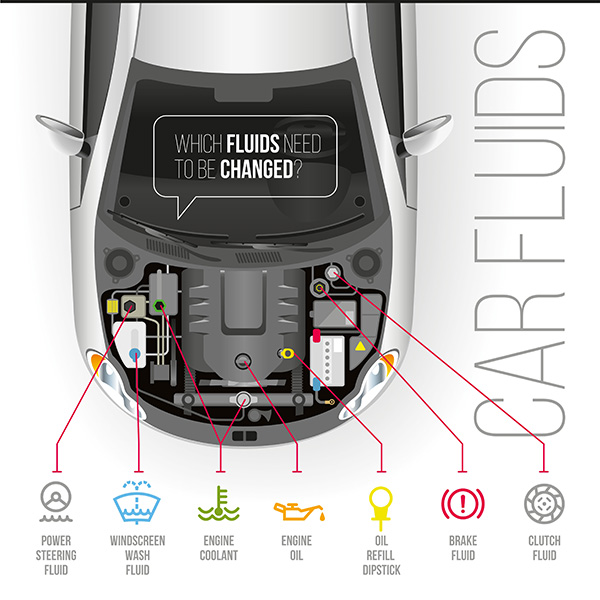
Owning a car is about more than just getting behind the wheel and hitting the road. To keep your vehicle running efficiently and extend its lifespan, routine maintenance is necessary—and that includes keeping an eye on your car’s fluids. These fluids ensure everything operates as it should. Neglecting them can lead to costly breakdowns. So, what are the most important car fluids you should be checking on a regular basis?
1. Engine Oil
When it comes to essential car fluids, engine oil is at the top of the list. Your engine’s moving parts generate heat and friction, and engine oil is responsible for lubricating those parts to prevent them from wearing out too quickly. It also helps to keep the engine cool by reducing friction.
Regularly checking and changing your engine oil is one of the simplest yet most important maintenance tasks you can do for your car. Old or dirty oil can lead to serious engine damage over time. Most car manufacturers recommend changing the oil every 5,000 to 10,000 miles, but this can vary depending on the type of oil you use and your driving habits.
To check your engine oil, simply pull out the dipstick, wipe it clean, reinsert it, and then check the level. If the oil is low, top it off with the recommended type for your vehicle.
2. Coolant (Antifreeze)
Coolant, also known as antifreeze, is crucial for regulating your engine’s temperature. It prevents the engine from overheating in the summer and from freezing in the winter. The coolant circulates through the engine, absorbs excess heat, and then releases it through the radiator.
Low coolant levels can cause your engine to overheat, leading to major mechanical problems that can be both dangerous and expensive. It’s a good idea to check the coolant level periodically, especially before long drives. Most vehicles have a translucent coolant reservoir, making it easy to see if it’s time for a top-up.
Keep in mind that different vehicles use different types of coolant, so always check your owner’s manual to ensure you’re using the right kind.
3. Transmission Fluid
Your car’s transmission fluid is another essential fluid that often gets overlooked. This fluid is responsible for lubricating the gears and other components in your car’s transmission, ensuring smooth shifting and preventing excessive wear.
Low or dirty transmission fluid can cause your car to experience hard shifting, slipping gears, or even complete transmission failure. For vehicles with automatic transmissions to keep the fluid in good condition, as repairs can be costly.
Transmission fluid isn’t typically changed as frequently as oil, but it’s crucial to monitor the level and condition regularly. Your owner’s manual will provide guidance on when and how to check it.
4. Brake Fluid
Brake fluid is directly tied to your car’s ability to stop, making it a critical component of your safety. This fluid transfers the force you apply to the brake pedal into the hydraulic pressure that activates the brakes. Without enough brake fluid, or if it becomes contaminated, your brakes may not function properly, increasing the risk of an accident.
You should check your brake fluid level every few months or if you notice a spongy or less responsive brake pedal. The brake fluid reservoir is usually easy to access under the hood, and you can quickly see if the fluid is low or needs to be replaced. It's worth noting that brake fluid is highly sensitive to moisture, so it should be replaced as recommended by your vehicle manufacturer.
5. Power Steering Fluid
Power steering fluid makes it easier to turn your steering wheel. It acts as a hydraulic fluid that enables the power steering system to function smoothly. Over time, the fluid level can drop due to leaks or normal wear and tear, making steering more difficult and less responsive.
If you find that turning your steering wheel has become more difficult or if you hear strange noises when steering, it could be due to low power steering fluid. Most cars have a reservoir under the hood where you can easily check the fluid level.
Keeping an eye on your power steering fluid level can prevent more significant steering system issues down the line.
Concerned about your car’s performance? Keeping your car’s fluids in check can make a big difference! Visit Strande's Garage for a complete fluid inspection and maintenance service. Let us help you stay ahead of potential issues—contact us now to get started!